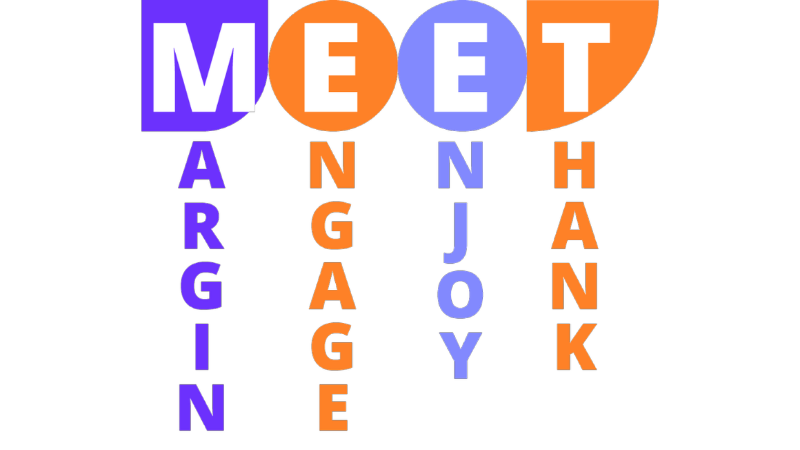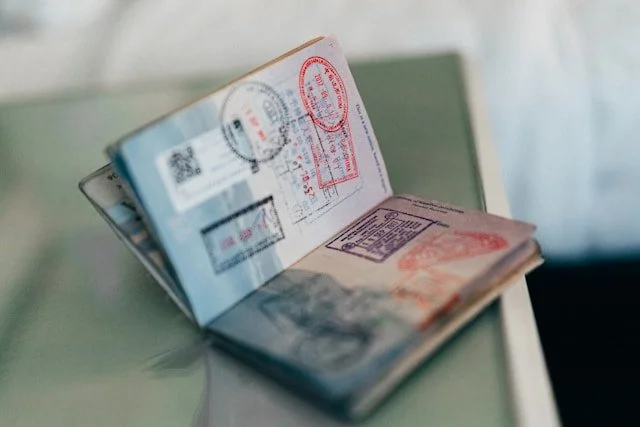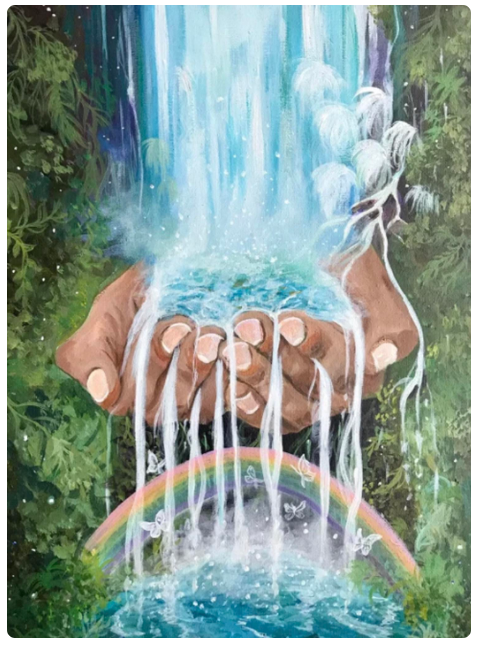Becoming a People of Forgiveness - Part 2
Photo by Tingey Injury Law Firm on Unsplash
Originally posted as a series on LectioLetter.com
Part II | Forgiveness, Judgement, Justice and Repentance
“It’s no wonder that this culture quickly becomes littered with enormous numbers of broken and now irreparable relationships. Politics itself becomes a new kind of religion, one without any means of acquiring redemption or forgiveness.”
― Tim Keller
“Resentment is like drinking poison and then hoping it will kill your enemies.”
― Nelson Mandela
“Forgiveness is not an occasional act, it is a constant attitude.”
― Martin Luther King Jr.
“Forgiveness is an act of the will, and the will can function regardless of the temperature of the heart.”
― Corrie Ten Boom
“Always forgive your enemies; nothing annoys them so much.”
― Oscar Wilde
In the previous part, I reflected on the significance of Jesus' life as an example of forgiveness. Jesus doesn’t simply charge the difficult things of life to some divine credit card but navigates his entire human existence through relying on the Spirit. In that way, his human life is truly a life that we can seek to imitate, not just by pulling ourselves up in heroic self-reliance and strength, but by admitting our lack and our weakness, and throwing ourselves reliantly on God and his empowering Spirit.
We need the power of the Spirit to do what we cannot do in our own strength. This is particularly true when we need to forgive others. We are called to be a people of forgiveness which is not only hard but basically impossible unless we are formed as people who cultivate a posture of forgiveness, who understand that we will be offended and hurt, and resolve by the power of the Spirit to be people who are truly marked by forgiveness.
I also reflected that while forgiveness, mercy and grace are big ideas embedded in the scriptures and the songs we sing, the reality is that everything seems to head south when we encounter a concrete situation where these are required. In the short term, anger, vengeance and justice stand out as the most attractive options to pursue.
Before we jump into the practical aspects of forgiveness, we need to consider the part forgiveness plays in the story of God because forgiveness flows from the reality that we have been forgiven. Indeed, most of the appeals to forgive in the New Testament are written to quarrelling churches and tie the act of forgiving one another to the forgiveness we have been offered in Jesus.
Sometimes we simplify the gospel to sound something like this: we are guilty, Jesus came to set us free from that guilt before God, and now we are no longer guilty. While these statements are true, they are certainly not the whole picture. Forgiveness does mean that we are no longer held responsible for our sin, but sin was not the very beginning of the story, and the removal of sin and guilt is not the end.
When we oversimplify the story, we end up with a transactional gospel. The transaction clears our debts and Jesus is the mechanism through which that debt is cleared. In this telling of the gospel, we only need Jesus as a mechanism, and this becomes a form of Christianity where Jesus is here to help us get what we want or need, and when he no longer fulfils our wants, he is discarded like a piece of outdated technology.
Although it includes debt, sin and guilt, the full scope of the Biblical story calls us into a deeper reality. This reality is the significance of God's presence. Sin and guilt are the brokenness that prevents us from seeing and experiencing God clearly, and their removal makes way for God's presence to dwell fully with humans in the way God always intended. Forgiveness removes the obstacles to presence, but the goal is reconciliation. The heart of the act of forgiveness is that presence and relationship can be restored. Forgiveness is what is required to restore a relationship but reconciliation is the fulfilment of forgiveness. If forgiveness is the root of the solution to our problem, then reconciliation is the fruit of the root of a forgiven life.
You may be wondering where repentance is in all of this? If forgiveness is for the sake of reconciliation, what part does repentance play? Most of us came to the saving knowledge of the Gospel by recognising that we have done wrong and have fallen short/missed the mark of what God intends. Following that awareness, we receive God's forgiveness and enter into an actively reconciled relationship with him.
This is where we begin to pick up one practical implication for the forgiveness we are called to live out. When we have an opportunity to forgive someone, surely they should repent before that forgiveness is offered and a reconciled relationship can begin? Ideally, we might expect someone to repent before they are offered forgiveness.
But we see in Jesus' life an offering of forgiveness before there is any repentance.
In Romans 5:8, Paul tells us that “God has demonstrated his own love for us in this; while we were still in our sin, Christ died for us.” Forgiveness is offered to an unrepentant people so that, as it says in Romans 2:4, God's kindness leads us to repentance. Jesus’ whole life has prepared him to become the type of person who knows how to offer forgiveness, even before others recognise and repent of their sin.
Sometimes, those who sin against us see what they have done and repent, but more often than not, even if some blame is accepted, it is often not fully acknowledged or owned. But in Jesus' life, we see an invitation to be ready to forgive, even if there has been no acknowledgement of any wrongdoing.
It is easy to resist forgiving someone who doesn’t acknowledge any wrongdoing because we feel somewhat entitled to justice, and to forgive would be to shortcut that. It grates with us. But when we forgive, it is not just about releasing our right to justice. It is also about judgement. It is a judgement that something has happened which was not supposed to happen, and it requires forgiveness. Therefore, even if the person who needs our forgiveness cannot express exactly what they need to be forgiven for, the offer itself, far from being a shortcut of justice, stands as a form of rebuke.
It is a rebuke but with a gift embedded within it. The gift is of forgiveness with the hope for reconciliation. It is this that allows forgiveness not just to be an easy peacemaking act or a kind of "sweeping something under the rug.” In forgiveness, we clearly name what has gone wrong and call it for what it is, something that requires forgiveness in order to restore the relationship.
When God becomes human in Jesus and lives a life culminating on the cross, he is engaging in an act of forgiveness in expectation of later repentance, not as a response to it. When we consider this and its implications in our own lives and broken relationships that require forgiveness it is, as someone once said to Jesus, "…a hard teaching. Who can accept it?"
Embedded in the word forgive, is the word give. I mentioned in the first part of the series that this helps us realise that when we forgive we are not engaging in a transactional exchange, but we are giving a gift. We effectively forgo the desire for justice and offer instead the gift of forgiveness.
We give a gift because we have received one.
God does not offer us transactional forgiveness, so there is no blueprint that says we should offer others transactional forgiveness. Rather, we have received in forgiveness the gracious gift of the Holy Spirit and this enables and empowers us to be able to forgo the desire for justice and offer the gift of forgiveness when we are hurt or offended. I understand that what I am saying here is not easy. It often feels nearly impossible, and this is why the act of forgiveness cannot simply be a human act of moral heroism. It is an impossible act made possible only by the power of the Holy Spirit.
By now, I'm sure some of you may be thinking of a number of scenarios in which the reflections I've offered are woefully shallow. While I believe that what I've said above is solid theology grounding all Christian acts of forgiveness, I'll admit the process of forgiveness does not look the same for a situation when someone cuts me off in traffic versus forgiving a person who has murdered or harmed someone I love.
In the next part, I will offer a further practical step in helping us identify what we need to keep in mind when we navigate, or help others navigate, the process of forgiveness.
About the author: Liam and Rachel Byrnes joined All Nations and did their CPx (Church Planting Experience) in 2010 in Cape Town. They've lived there ever since working in the township of Masiphumelele encouraging and mentoring young people and local leaders. In the past few years, alongside a local team, they've helped lead Isithembiso, the Child of Promise ministry. They also serve the YWAM University of the Nations' Centre for Christian Formation and Discipleship, teaching, training, mentoring, and coaching other mission and ministry leaders.
Get Connected & Let’s Grow Together!
We invite you! Here are some amazing resources and events we hope you’ll check out!
To participate or learn about our monthly global prayer for the neglected people around the world, sign-up HERE to receive a monthly video prayer invite. We meet on the last Thursday of each month at 8 am CST (US). We encourage everyone to join in as we pray that Jesus will be worshiped by all peoples of the earth — the least, the last, and the lost!
Lessons from the Least, the Last, and the Lost, All Nations Weekly Devotion by Blake Staton, M.Div.
All Nations Pocket Guide to Church Planting by Dr. Pam Arlund (in many languages)
All Nations Storytelling Resource
Mission’s Edge, a monthly roundtable learning opportunities with ministry and missions leaders! Sign-up for any of these today and participate! Let’s grow together!
Our Founder, Floyd McClung, has 18 books and audio/video teachings that will be an encouragement to you as you press in to all Jesus has for you in your journey! Connect HERE to our founders area to be equipped!
What are you needing? Reply and let us know how we can help you! You can also email us at: comm@allnations.international.
We want to serve you and help you find your seat in the Great Commission. We have volunteer opportunities, too!
Be sure to see some of our recent blogs below to continue learning and growing with us!
Bless you today!











